School Highlights
Great Bay Community College serves 3,484 students (15% of students are full-time).
The college's student:teacher ratio of 22:1 is higher than the state community college average of 19:1.
Minority enrollment is 28% of the student body (majority Asian and Hispanic), which is less than the state average of 33%.
Quick Stats (2025)
- Enrollment: 3,484 students
- In-state tuition: $7,104
- Out-state tuition: $15,264
- Student:teacher ratio: 22:1
- Minority enrollment: 28%
- Source: Integrated Postsecondary Education Data System (IPEDS)
School Overview
The teacher population of 155 teachers has stayed relatively flat over five years.
Great Bay Community College
(NH) Community College Avg.
Carnegie Classification
Associate's Colleges: Mixed Transfer/Career & Technical-High Nontraditional
Associate's Colleges: Mixed Transfer/Career & Technical-High Nontraditional
Institution Level
At least 2 but less than 4 years
At least 2 but less than 4 years
Institution Control
Public
Public
Total Faculty
155 staff
145 staff
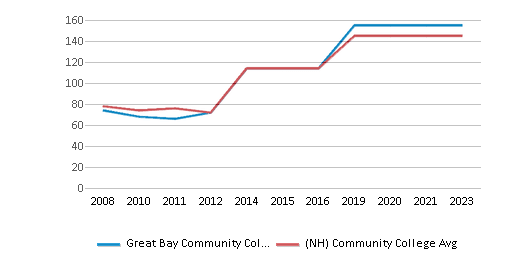
School Calendar
Student Body
The student population of Great Bay Community College has grown by 105% over five years.
The student:teacher ratio of 22:1 has increased from 10:1 over five years.
The Great Bay Community College diversity score of 0.48 is less than the state average of 0.52. The school's diversity has grown by 42% over five years.
Total Enrollment
3,484 students
1,818 students
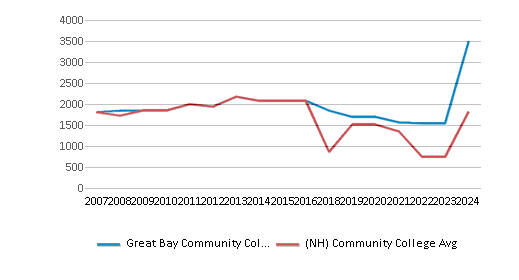
Student : Teacher Ratio
22:1
19:1
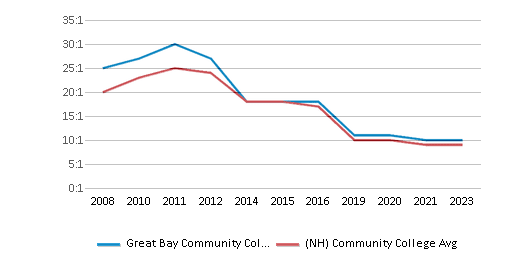
# Full-Time Students
525 students
276 students
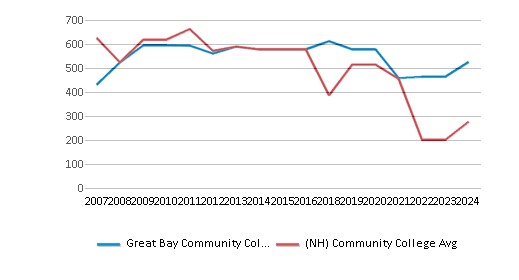
# Part-Time Students
2,959 students
1,659 students
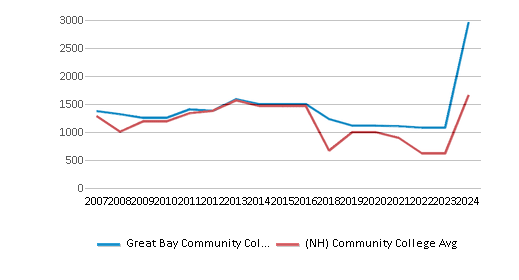
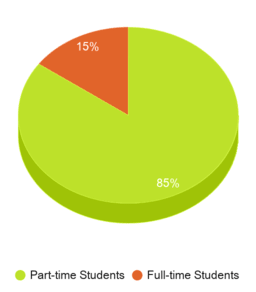
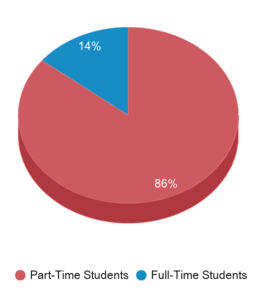
# Enrollment Undergraduate
348 students
298 students
# Full-Time Undergraduate Students
525 students
276 students
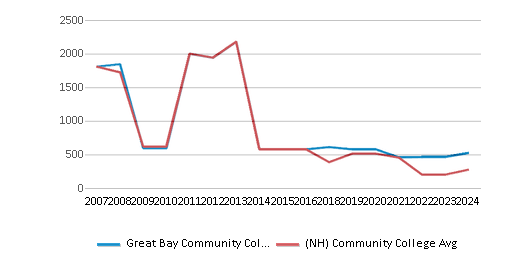
# Part-Time Undergraduate Students
2,959 students
1,659 students
Total Dormitory Capacity
n/a
112 students
% American Indian/Alaskan
2%
2%
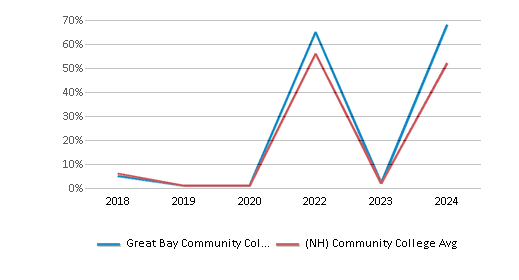
% Asian
5%
4%
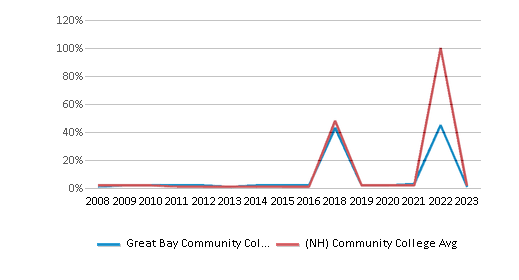
% Hispanic
4%
6%
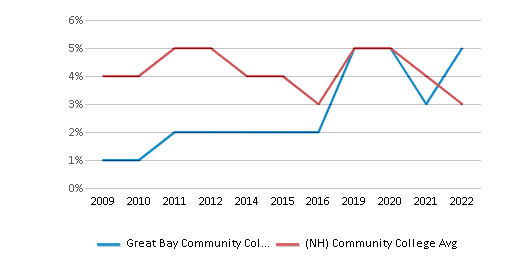
% Black
2%
3%
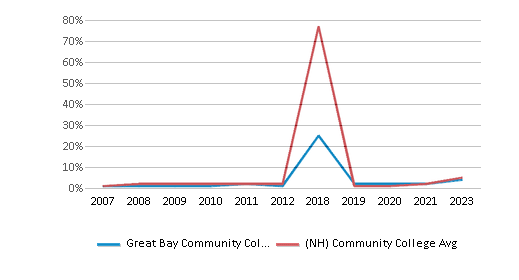
% White
72%
67%
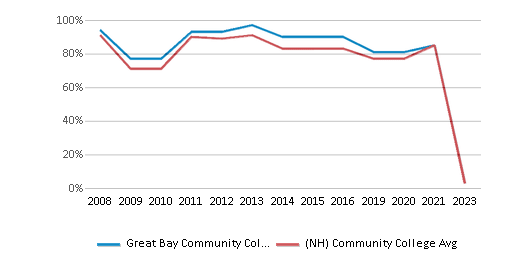
% Hawaiian
n/a
n/a
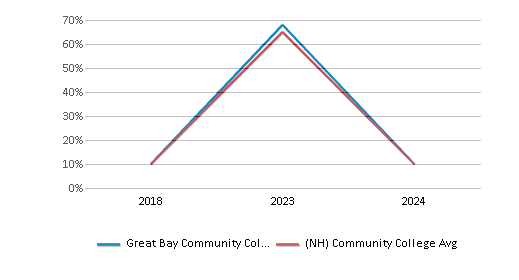
% Two or more races
2%
2%
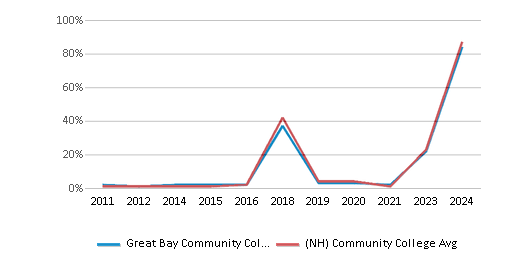
% Unknown races
12%
16%
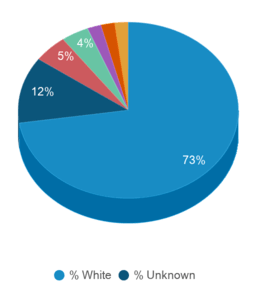
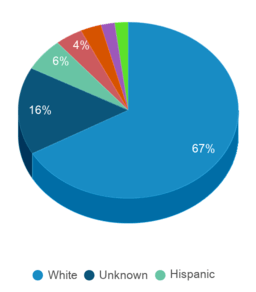
Diversity Score
0.48
0.52
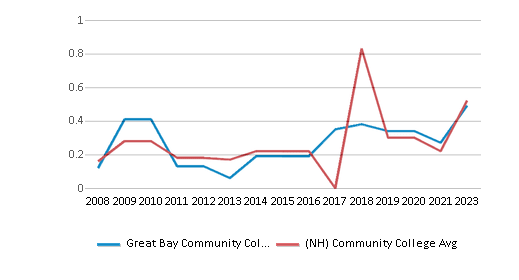
College Completion Rate (Students who graduate in less than 4 years)
0.2387%
0.3469%
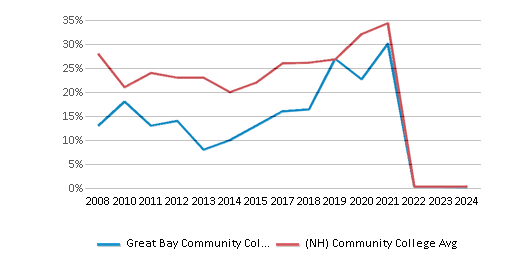
Average Graduate Earnings (10 Years) (Year 2008)
$41,900
$40,500
Tuition and Acceptance Rate
The public in-state tuition of $7,104 is more than the state average of $6,952. The in-state tuition has stayed relatively flat over four years.
The public out-state tuition of $15,264 is more than the state average of $15,095. The out-state tuition has stayed relatively flat over four years.
In-State Tuition Fees
$7,104
$6,952
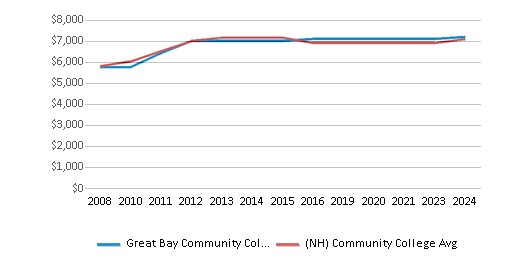
Out-State Tuition Fees
$15,264
$15,095
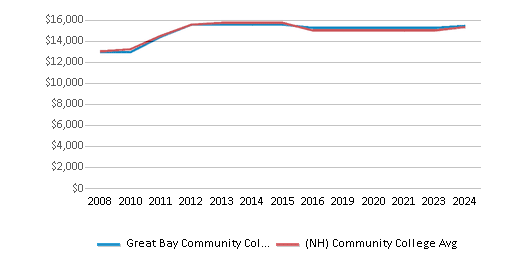
% Students Receiving Some Financial Aid
71%
75%
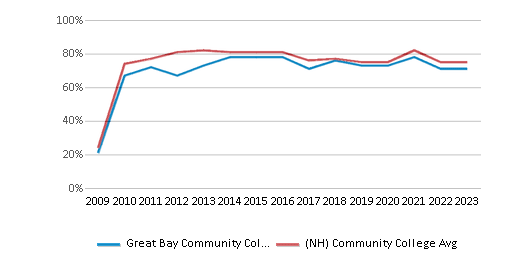
Median Debt for Graduates
$14,125
$14,250
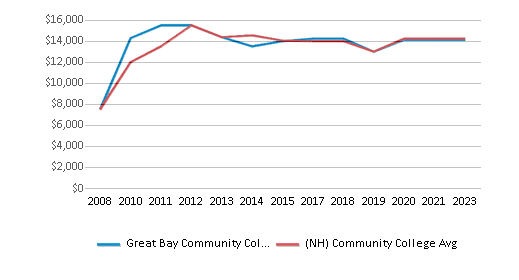
Median Debt for Dropouts
$5,500
$7,196
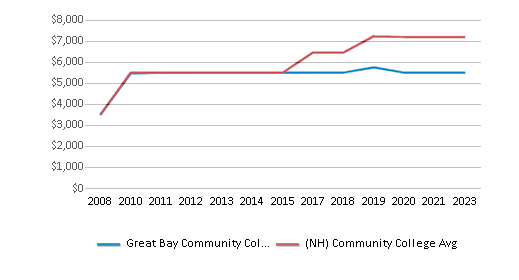
Source: 2024 (or latest year available) Integrated Postsecondary Education Data System (IPEDS)
Frequently Asked Questions
How much does Great Bay Community College cost?
Great Bay Community College's tuition is approximately $7,104 for In-State students and $15,264 for Out-State students.
In what neighborhood is Great Bay Community College located?
Great Bay Community College is located in the Pease neighborhood of Portsmouth, NH.
Recent Articles

Obtaining Your Bachelor's Degree at a Community College
Explore the evolving landscape of community colleges offering bachelor's degrees, addressing affordability, accessibility, and workforce needs.

A to Z of Community College Certificates and Courses
From business and healthcare to technology and skilled trades, the article showcases the breadth of options available to students seeking to enhance their knowledge, develop new skills, or pursue career advancement.

What is a Community College?
This comprehensive guide explains what a community college is, its history, and its role in higher education. It covers the types of programs offered, differences from four-year colleges, benefits of attending, and important considerations for prospective students, providing valuable insights for those exploring educational options.









